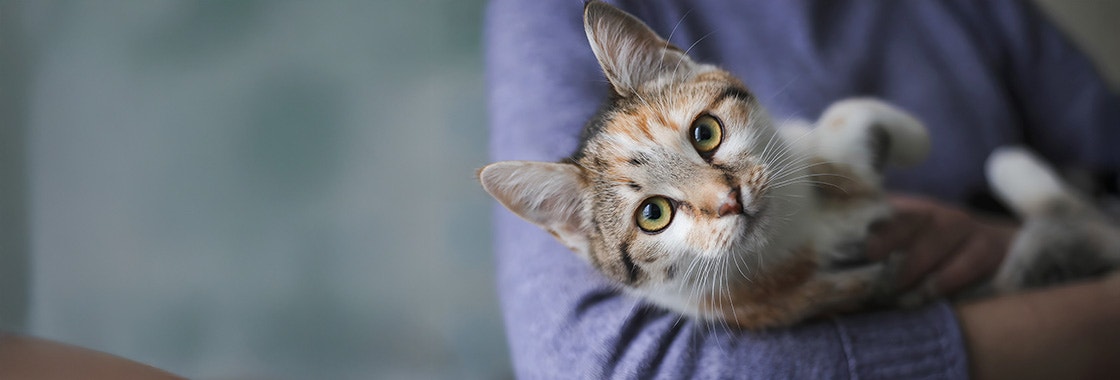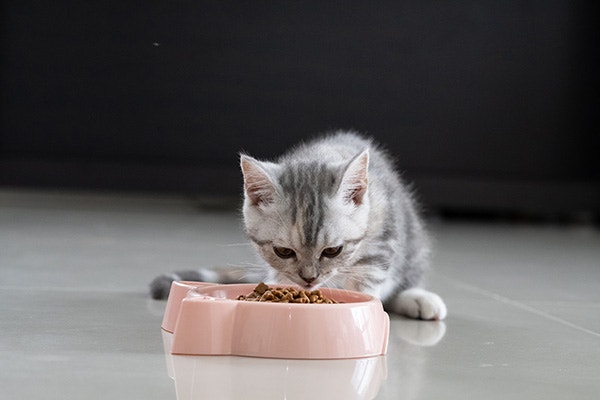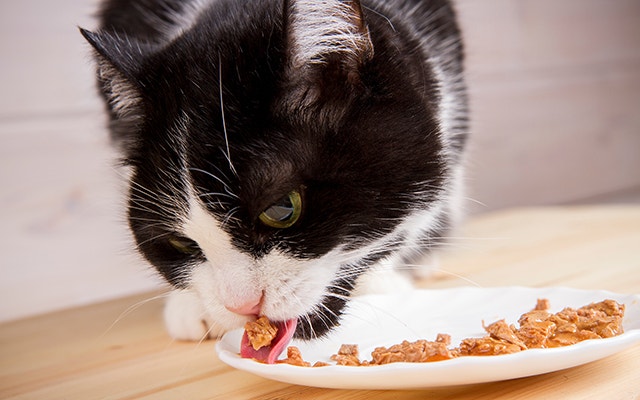- Homepage
- Blog
- Bonding & Care
- Male Or Female Cat
Are Male Cats More Affectionate Than Female Cats?


Share
The age-old debate of whether male or female cats are more affectionate and which gender makes a more cuddly companion has long intrigued cat lovers. Whether you're adopting a kitten or trying to understand your current feline friend more intimately, it's natural to wonder if gender plays a role in how cuddly and loving your cat may be.
In this article, we explore the differences between male vs female cats, how personality, environment and upbringing influence affection levels, and what matters when bonding with your pet. You’ll also find helpful advice on strengthening your bond, regardless of their gender. Curious to learn more about temperament and unique traits? Discover the friendliest cat breeds for more insights.
Are Female Cats More Independent?
It’s often said that female cats have a streak of independence. This stereotype, especially true for unspayed females, paints them as more reserved or cautious when it comes to showing affection. So, are male or female cats more affectionate? Female cats often seem aloof, as their hormonal cycles can cause mood swings that make them appear reserved. However, spaying can transform many into devoted companions who quietly curl up beside you and purr in silent trust. Kittens can become pregnant from just 4 months of age. Vets recommend spaying to remove the risk of unwanted litters. This needs to position spaying as the responsible and essential thing for pet owners to do as young as possible.
So while some cat owners insist male cats are more affectionate, plenty of spayed females build equally strong bonds in their gentle style. Female cats, however, may be more selective in their friendships and show affection differently. While they may be less expressive and less attentive than males, it's a strong and lasting connection when a female cat chooses you as her companion. Learn more about how cats show affection and love to understand these subtle behaviours better.
Male vs Female Cats
Many owners report that males can be more openly affectionate when discussing male vs. female cats. Neutered male cats, in particular, often develop a reputation for being playful, sociable, and more willing to seek out cuddles. They may be more likely to jump on your lap, rub against your legs, or follow you from room to room. However, unneutered males can display territorial behaviours like spraying and roaming, which might overshadow their affectionate side—neutering usually helps balance this. Vets recommend neutering of male kittens from as young as 4 months old. This is to prevent them from roaming, risking being hit by a car, fighting with other male cats, preventing unwanted litters and territory marking behaviours, and ultimately protecting their health.
Here’s a quick comparison of typical behaviours to help you decide if male or female cats are more affectionate:
- Tendency to cuddle: Male cats, especially those neutered, are often more openly affectionate; females may be loving, but on their terms. Learn more about why cats sit on your lap.
- Independence: Female cats are often seen as more independent and selective with their affection.
- Vocalisation: Both genders can be vocal, although some owners report that males meow more when seeking attention.
- Territorial behaviour: Males (especially unneutered) are more likely to spray or roam; females may be territorial but generally less so after spaying.
- Ease of training: When comparing male vs female cats, both are intelligent, but males can sometimes be more playful and eager to engage.
Remember, these are general trends—many cats defy stereotypes! Personality and environment play a huge role in how affectionate your cat becomes.
What Impacts a Cat’s Affectionate Behaviour?
When considering whether male or female cats are more affectionate, it's essential to understand that gender is just one part of the bigger picture. Early socialisation, such as how your cat was introduced to people, other animals, and environments as a kitten, plays a considerable role in shaping affectionate behaviour. Cats that experience positive human interaction early on are more likely to be confident and cuddly as adults.
Spaying or neutering also has a major influence on cats' behaviour. Hormones can trigger roaming and territorial instincts, so neutered male or female cats often display calmer, more loving behaviour. Their energy shifts from marking or mating to bonding with their humans.
Finally, a stable environment, consistent affection and familiarity matter. Cats thrive on routine and trust. A dependable home with regular feeding, play, and endearment builds security. Over time, your male or female cat will likely grow more affectionate as the bond deepens and they mature. Learn more about feline communication and feelings in our guide to why do cats purr.
How to Bond With Your Cat
Building a close bond with your male or female cat takes time and patience, but these steps can help deepen your connection:
- Respect their space: Cats value independence. Let them approach you on their terms rather than forcing interaction. This helps build trust and ensures your cat feels secure.
Use treats wisely: Positive reinforcement is key. To build positive associations, offer a favourite treat when your cat displays calm or affectionate behaviour. Over time, they'll relate to you with assured feelings and more appreciation. - Interactive play: Regular play sessions with toys like ping pong, balls, or laser pointers keep your cat active and strengthen your bond. Engaging in daily play helps burn off energy and reinforces your role as a source of fun.
- Routine matters: Cats are creatures of habit. Feeding, playing, and grooming at consistent times each day creates a reassuring structure that builds trust.
- Gentle grooming: Brushing your cat regularly, especially long-haired breeds, provides comfort and physical closeness. It also helps you notice any health issues early on.
- Watch their signals: Learn to read your cat’s unique ways of showing affection. Some cats love cuddles, others express their love by sitting nearby or following you from room to room. Every cat is different.
- Talk to your cat: Verbal interaction strengthens your bond. Whether male or female, cats respond to tone and familiar voices. Curious about what your cat might be responding to? Learn more in our guide on why do cats meow to read their body language even more!
So, Male or Female Cat - Which One Is Right for You?
Choosing between a male or female cat can feel like a big decision, but ultimately, gender is just one factor to consider. What matters most is finding the cat whose personality and needs and how well your personalities fit together.
Every male or female cat has the potential to be affectionate, playful, or independent. The best way to decide? Spend time meeting cats and observing their behaviour closely. Building a strong bond is about trust and patience. SHEBA® is proud to be part of your journey, helping you nurture a loving relationship no matter which cat you welcome home.
Are male or female cats more Affectionate - FAQs
Why are male cats more cuddly?
Neutered male cats are often more affectionate because they’re less territorial and more relaxed. Their cuddly behaviour is shaped by early socialisation and trust, not just gender. Neutering from four months old is recommended for all cats to support their health, happiness, and to help prevent unwanted litters.
Which gender of cat is more cuddly?
Many owners claim that male cats are more affectionate, but many female cats also love cuddles. The best indicators of cuddliness are individual temperament, trust, and routine, rather than simply whether you have a male or female cat in your home.
Do male cats prefer female owners?
There’s no solid evidence that male cats prefer female owners. A cat’s affection is shaped more by individual personality, early socialisation, and consistent care than by the gender of their human companion.
Is it better to get a male or female cat?
Both can make affectionate companions when considering male vs. female cats, but their unique personality, upbringing, and environment often shape how they bond with you. Understanding and respecting these differences is key to nurturing a deep, loving connection.











